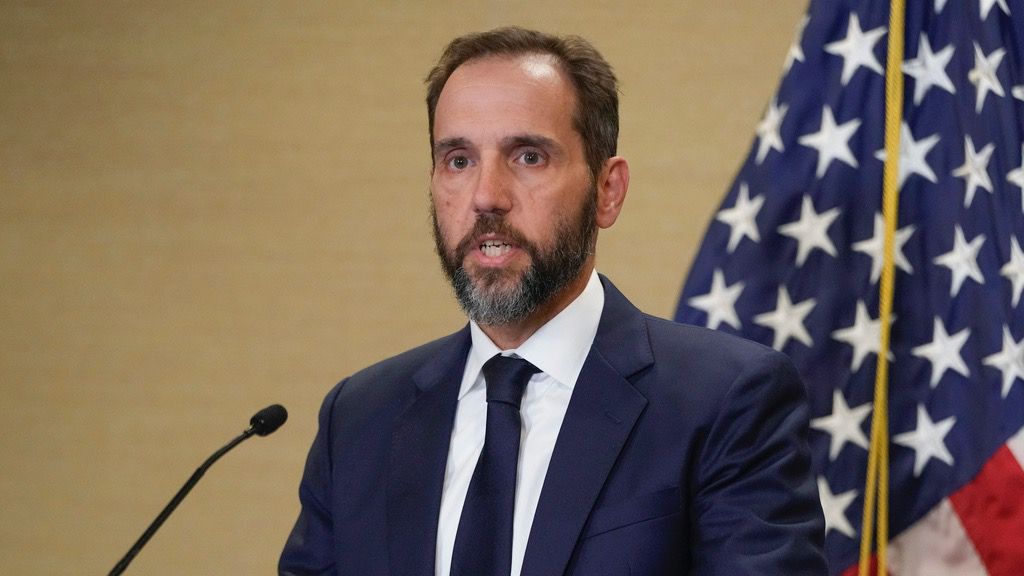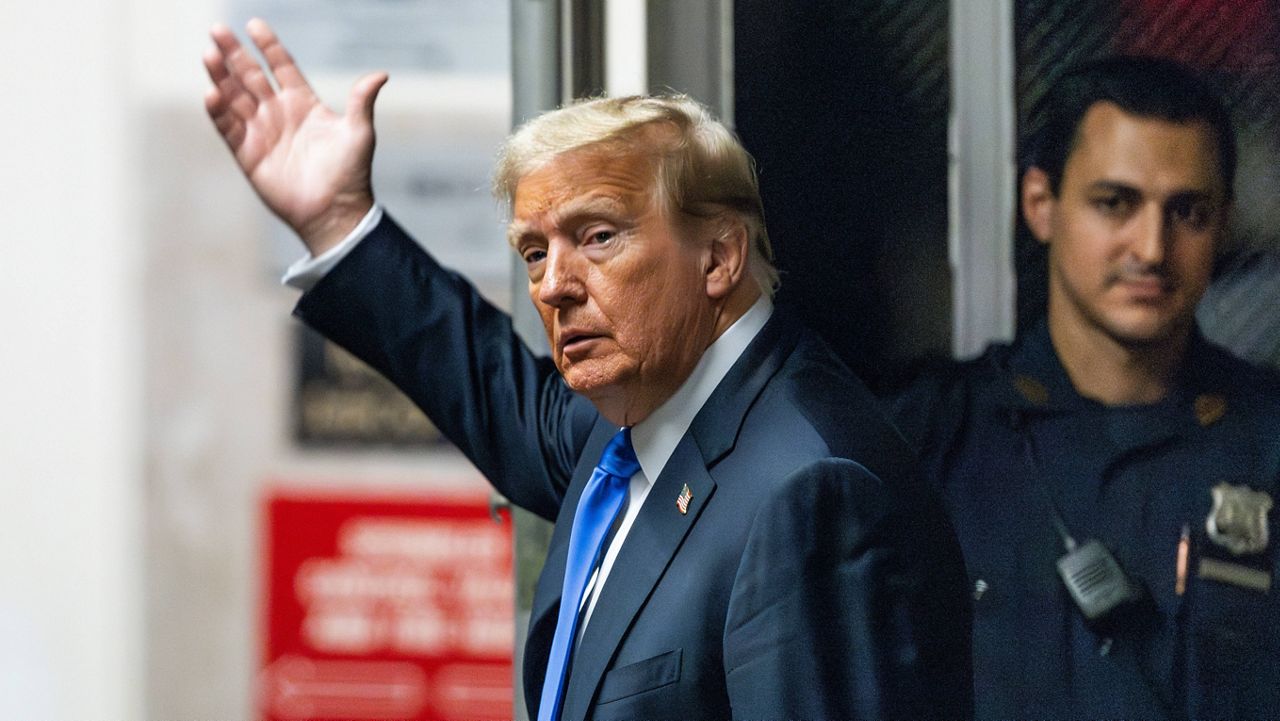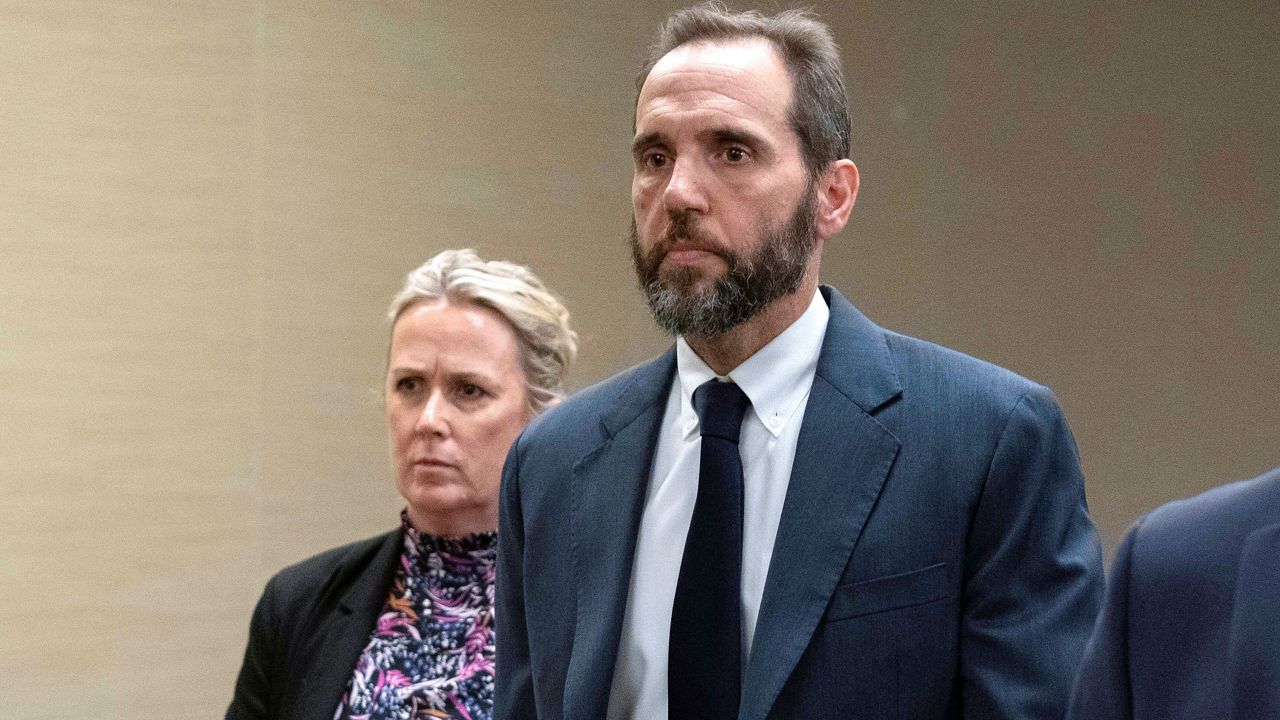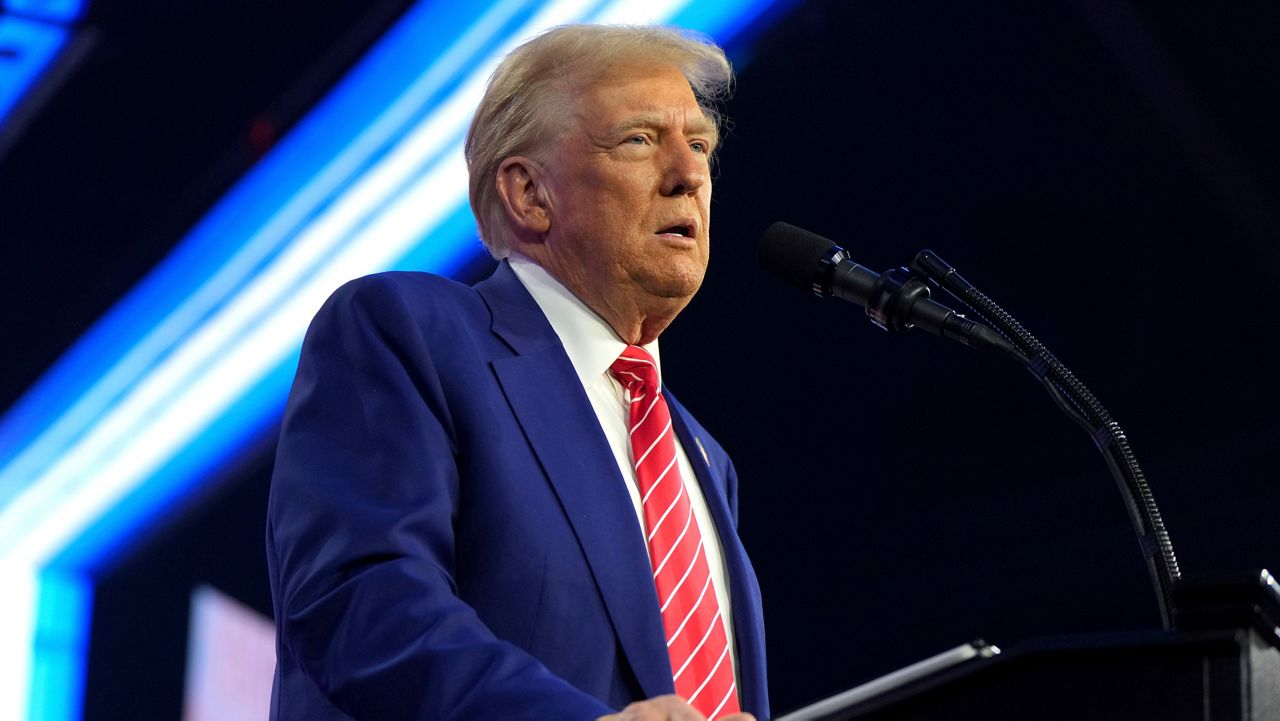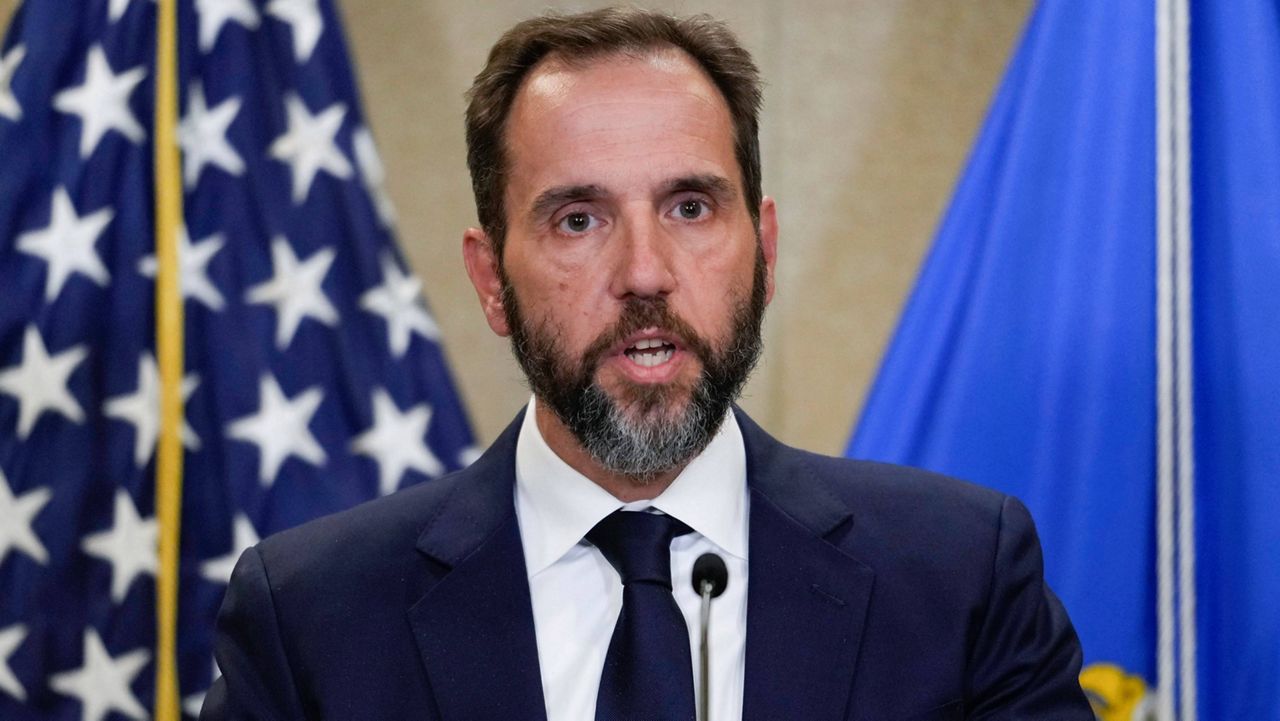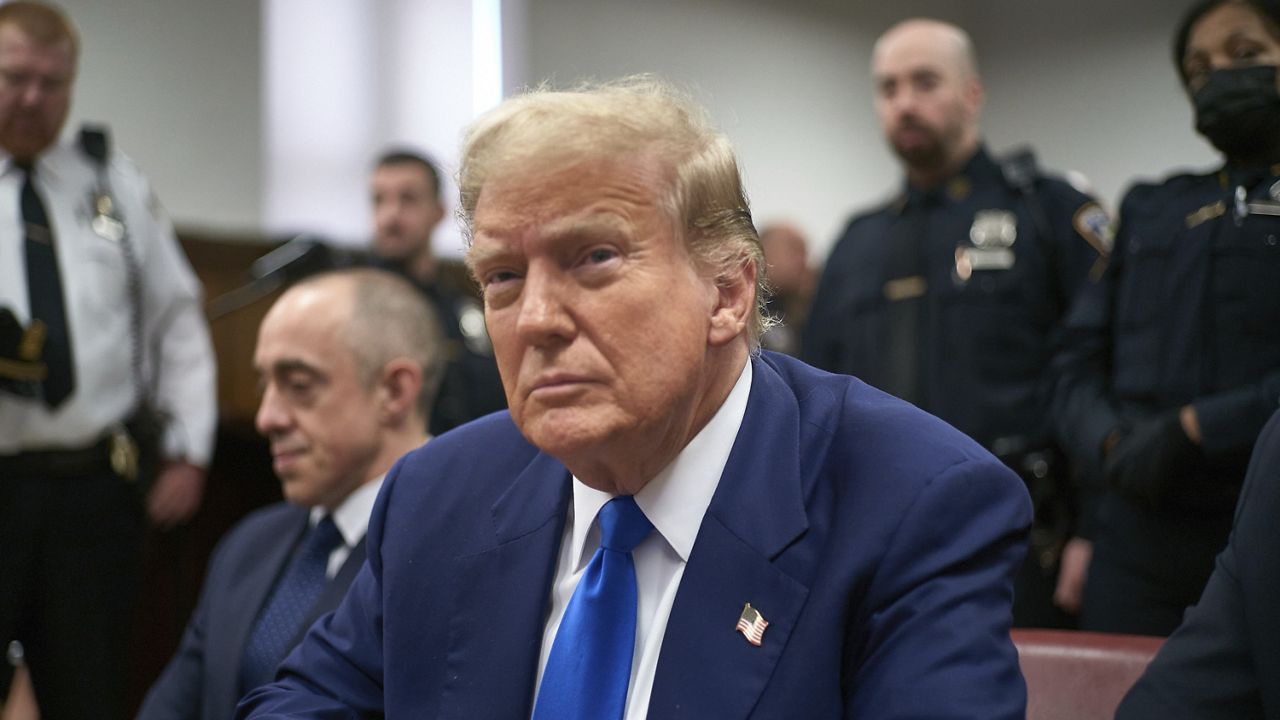NEW YORK — President-elect Donald Trump is still set to be sentenced in his hush money case this week — at least for now — after a New York appeals court judge on Tuesday swiftly rejected his second attempt to get it called off.
What You Need To Know
- A New York appeals court judge has denied President-elect Donald Trump’s latest bid to delay this week’s sentencing in his hush money case
- In a one-sentence ruling following an emergency hearing on Tuesday, Judge Ellen Gesmer denied Trump’s request for an immediate order that would spare him from being sentenced while he appeals Judge Juan M. Merchan’s decision last week to uphold the historic verdict
- It was the second time in two days that Trump was denied
- Trump went to the Appellate Division of the state’s trial court a day after Merchan rebuffed his initial bid to indefinitely postpone sentencing
- Trump’s sentencing remains on schedule for Friday, though he can still ask other courts to intervene
Judge Ellen Gesmer, of the state's intermediate appellate court, denied Trump's request for an order that would have indefinitely postponed sentencing and halted the case while he appeals a decision last week upholding the verdict.
Gesmer's ruling leaves Trump's sentencing on schedule for Friday, though he can still ask other courts to intervene. His lawyers have been fighting for months to have a federal court seize control of the case and have previously suggested taking the case to the U.S. Supreme Court.
Gesmer’s one-sentence decision didn’t give reasons for her denial. At an emergency hearing about an hour before the ruling, she asked probing questions of both sides. The hearing, in the Appellate Division of the state's trial court, was attended by Trump's lawyers and Manhattan prosecutors, but not Trump.
Trump, fighting to avoid the finality of his conviction before he returns to the White House, turned to the Appellate Division after the trial judge, Juan M. Merchan, on Monday rebuffed his first attempt to delay his sentencing.
At Tuesday's hearing, Trump lawyer Todd Blanche doubled down on the defense's contention that Trump can’t be sentenced because, as president-elect, he enjoys the same immunity from criminal proceedings as a president.
Merchan had rejected that idea in his ruling last week and Steven Wu, arguing for the Manhattan district attorney’s office, said it flew in the face of the long-held concept of one president at a time.
“Do you have any support for the notion that presidential immunity extends to the president-elect?” Gesmer asked.
“There’s never been a case like this before. So no,” Blanche responded.
But, citing the Justice Department's longstanding policy on presidential immunity, Blanche said, “everybody agrees that President Trump is entitled to complete immunity from any criminal process” once he takes office.
The same should apply to Trump, he argued, writing in court papers that continuing the case could impinge on his transition — “a process that directly concerns the United States of America’s national security and vital interests.”
When Gesmer quizzed prosecutors about that argument, they noted that Trump can appear virtually at sentencing and that Merchan has signaled that he plans to impose no jail, fine or probation for his conviction last May on 34 felony counts of falsifying business records.
“Those together fully accommodate any concern the defendant might raise,” Wu said.
Blanche countered that Merchan's plans for sentencing Trump aren't binding and don't mitigate the defense's concerns and the potential impact on his presidency. He asked Gesmer: “If Judge Merchan were to sentence President Trump to 11 days in prison, would the court say, ‘OK now we need to step in?’”
Trump, whose sentencing is scheduled for 10 days before his inauguration, is poised to be the first president to take office convicted of crimes. Merchan has said he will accommodate the transition by allowing him to appear at sentencing by video, rather than in person at a Manhattan courthouse.
This week’s flurry of legal activity echoed Trump’s efforts to delay his trial last year, with his lawyers racing to the Appellate Division on successive days, only to be denied.
If Trump's sentencing is halted and doesn’t happen before his second term starts Jan. 20, presidential immunity could put it on hold until he leaves office.
Either way, Blanche argued, Trump's presidency is sure to be affected by ongoing litigation arising from the case. That includes his appeal this week of Merchan's decision to uphold the verdict, which is sure to linger into his second term. Trump has also vowed to appeal his conviction, but that can only happen after he is sentenced.
Merchan last Friday denied Trump’s request to throw out his conviction and dismiss the case because of his impending return to the White House. The judge ruled that Trump’s current status as president-elect does not afford him the same immunity from criminal proceedings as a sitting president and set his sentencing for Jan. 10.
Merchan wrote that the interests of justice would only be served by “bringing finality to this matter” through sentencing. He said giving Trump what’s known as an unconditional discharge — closing the case without jail time, a fine or probation — “appears to be the most viable solution.”
In his filing Tuesday, Blanche argued that Merchan's interpretation of presidential immunity was wrong and that it should extend to a president-elect during “the complex, sensitive process of presidential transition.”
“It is unconstitutional to conduct a criminal sentencing of the president-elect during a presidential transition, and doing so threatens to disrupt that transition and undermine the incoming president’s ability to effectively wield the executive power of the United States,” Blanche wrote.
Trump’s lawyers are also challenging the judge's prior decision rejecting Trump’s argument that the case should be dismissed because of the U.S. Supreme Court’s ruling last July that gave presidents broad immunity from prosecution.
Manhattan prosecutors have pushed for sentencing to proceed as scheduled, “given the strong public interest in prompt prosecution and the finality of criminal proceedings.”
Trump was convicted last May on charges involving an alleged scheme to hide a hush money payment to porn actor Stormy Daniels in the last weeks of Trump’s 2016 campaign to keep her from publicizing claims she’d had sex with him years earlier. He says that her story is false and that he did nothing wrong.
The case centered on how Trump accounted for reimbursing his then-personal lawyer Michael Cohen, who had made the payment to Daniels. The conviction carried the possibility of punishment ranging from a fine or probation to up to four years in prison.
Trump’s sentencing initially was set for last July 11, then postponed twice at the defense’s request. After Trump’s Nov. 5 election, Merchan delayed the sentencing again so the defense and prosecution could weigh in on the future of the case.






